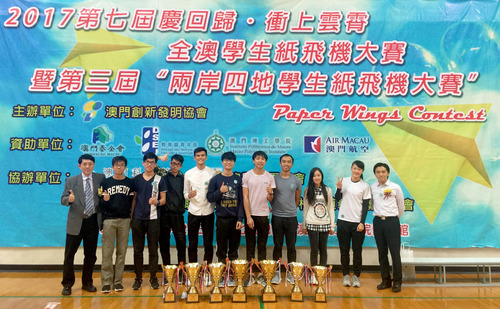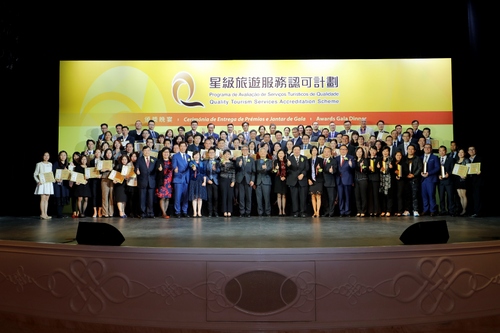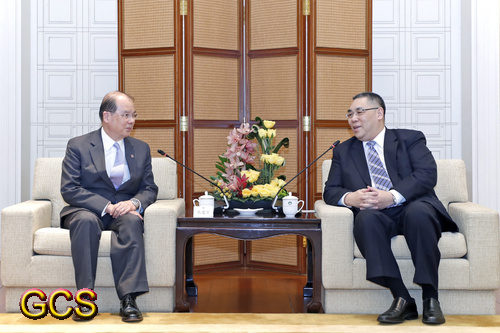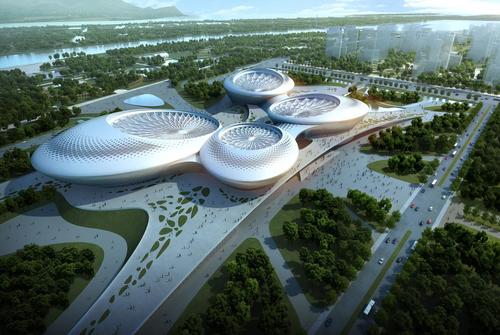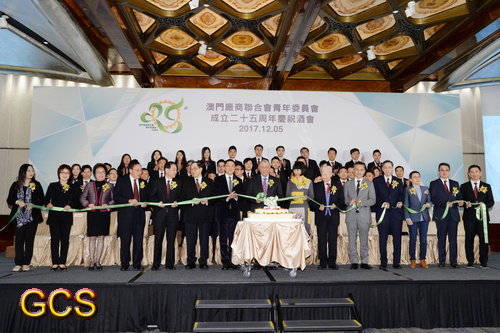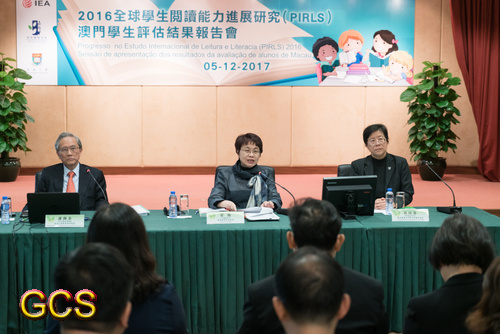Macao SAR Government Portal
News
UM students win 4th straight championship at paper plane contest
Students from the Department of Electromechanical Engineering, Faculty of Science and Technology (FST), University of Macau (UM), led by Senior Instructor Lao Seng Kin, recently won the top three prizes in both the group category and the individual category, in the university section of a paper plane contest. This is the fourth consecutive year that UM students have won the championship at this competition.
…
Government responds to Macao being on EU’s ‘non-cooperative’ list regarding taxation
The Government considers the decision of the European Union (EU) to include Macao on its list of “non-cooperative” taxation jurisdictions as being unilateral and biased.
…
Winners of “Quality Tourism Services Accreditation Scheme” Awards 2017 in catering and travel agency sectors unveiled
Macao Government Tourism Office (MGTO) has been carrying out the “Quality Tourism Services Accreditation Scheme” (“QTSAS” or the “Scheme”) for four years in a row. This year, the Scheme continues to target the catering sector and travel agencies. Studies will take place on the feasibility of covering other sectors in the Scheme as well. Including the winners of 2017, a total of 233 catering businesses and 37 travel agencies have been presented the “Star Merchant Award” since the Scheme was first launched. The Office hosted a QTSAS Awards Gala Dinner tonight (5 December).
…
Macao Orchestra participates in the Grand Original Opera – The Diaries of John Rabe in Nanjing
The Macao Orchestra (OM), under the auspices of the Cultural Affairs Bureau, was invited by the Jiangsu Centre for the Performing Arts to participate in the rehearsals and performance of the Grand Original Opera –The Diaries of John Rabe in Nanjing from 27 November to 16 December, in order to commemorate the 80th Anniversary of the Nanjing Massacre victims. Eighteen OM elite musicians, including Section Principals, will join hands with members of famous arts groups from Jiangsu Province, offering local citizens an artistic performance of great significance.
…
Consumer Council released latest ‘Supermarket price survey’ Surveyed spots included 13 supermarkets in N. Sra. de Fátima Parish
Consumer Council conducted its second ‘Supermarket price survey’ on 5 December for the implementation of Section 2b), Article 10, Law 4/95/M of 12 June. Surveyed locations included supermarkets near Iao Hon Market and the Border Gate area (Portas do Cerco ) in N. Sra. de Fátima Parish.
…
17th Macao City Fringe Festival outreach activities broaden artistic experiences
The 17th Macao City Fringe Festival, organized by the Cultural Affairs Bureau (IC, from the Portuguese acronym), features a series of outreach activities, including talks, workshops and art critique, in order to broaden the public artistic experience through diversified activities.
…


